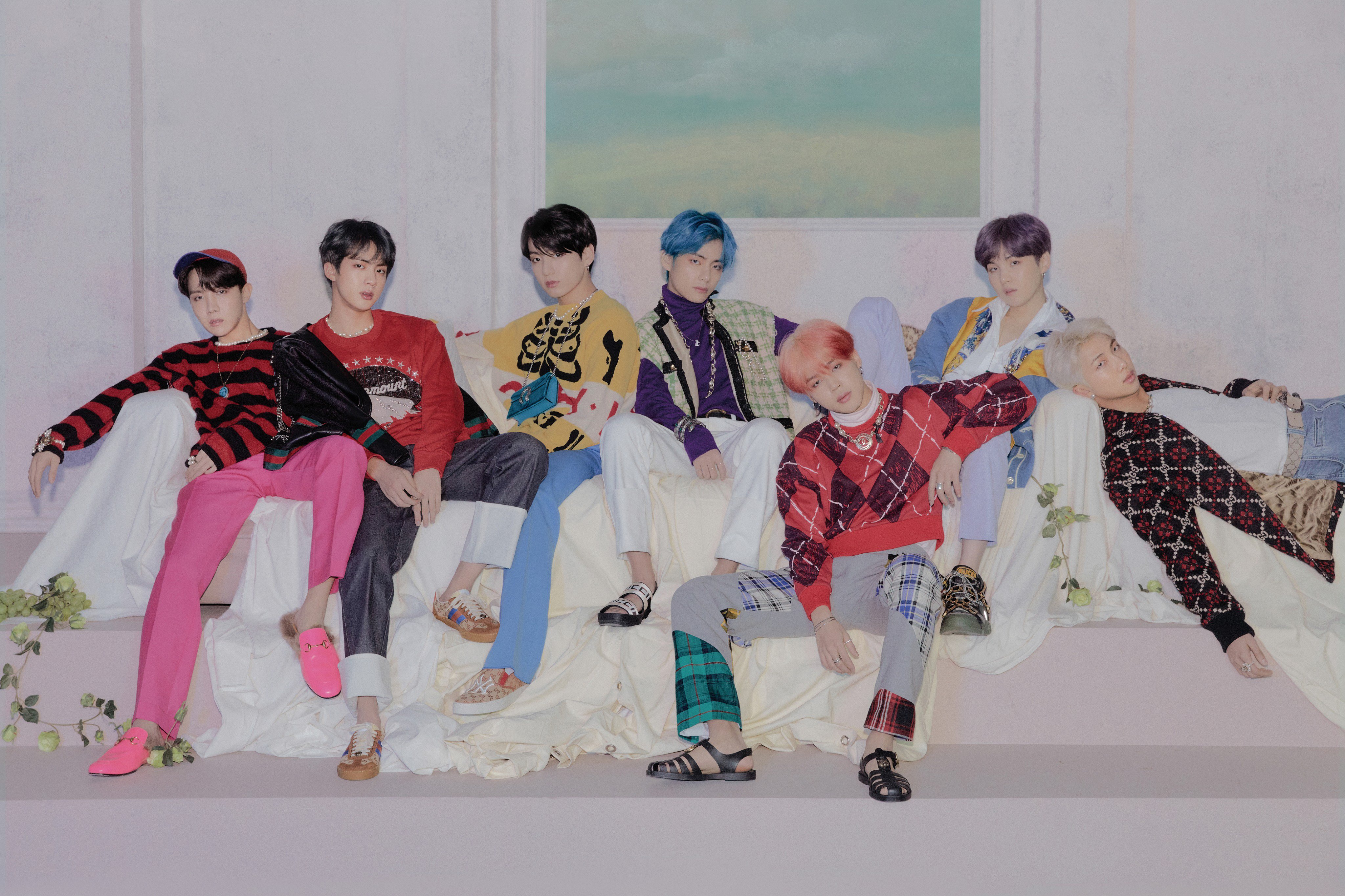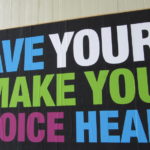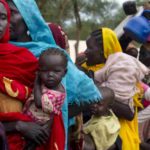South Korea’s boy-band, Bangtan Sonyeondan (BTS), with its seven members; RM, Jin, Suga, J-Hope, Jimin, V, Jungkook, come together to make the biggest boy-band in the world today. But instead of spreading the American standard of boy-bands being cliché, masculine but in a cute way, and targeting a specific audience that is later dubbed as ‘fans that are screaming girls’, BTS is spreading a message of gender fluidity and empowering people worldwide.
To know why BTS’ message of gender positivity and the ability of the individual to change the world, we have to understand where they come from. In the journal “Women’s Status in South Korea”, Marian Lief Palley says, growing up in Korea, all women are taught to be obedient “to the father when young; to the husband when married; and to the son in old age.” It is also globally known that South Korean beauty standards encourage not just the women, but the men as well, to aspire to pale skin, big eyes, skinny legs, cherry-like lips, a small face and a body ratio where the body is nine times as long as the face. It doesn’t come as a surprise then, that plastic surgery is more socially accepted and is even offered to young girls as a birthday gift. The physical appearance of K-pop idols has greatly impacted the beauty standards in Korea.
In the industry where the female idols are still very much restricted to gender norms and have to present themselves as cute and slightly naughty, the reason why BTS paved the way for embracing gender positivity on a global scale is because of their androgynous image and the way they include the problems that the youth of South Korea face in their music. In contrast to how open other pop singers are about their political views, Korean Pop acts are often very careful about expressing their views when it comes to topics like gender identity.
Their body of work does not just restrict to gender roles but also the fluidity of the self. Their message includes a need to be beyond the trappings of society and gender, a message to love yourself, speak yourself and to take off the mask that every individual creates to conform to their societal norms. Each member has a style that is unique and personal. Through the course of their discography, they have embraced masculinity, femininity, androgyny and have steadily reached a point where they transcend the definition of being Korean pop stars. The reason why this has resonated with millions of fans across the globe is because it is truly monumental to see fluid nature of their aesthetic on display from an all-male group.
In the canon of BTS, even when they had debuted as a hip-hop group, they were not dictated by toxic masculinity and flaunted their winged eyeliner. Since then, you see BTS wearing clothes designed for women, wear make-up, behave in a feminine manner and none of it fazes the fans or even encourages to label them as ‘effeminate’. They have been noted to use ‘her’, ‘she’, ‘he’ and ‘him’ as interchangeable pronouns. This shows that in their music and ambition, all forms of love and dualities are explored. They sing, dance and rap and they speak about the absolute form of love that goes beyond the traditional, normal, monogamous, or even sexual.
While the industry has been noted to objectify K-Pop artists and show them off as perfect specimens of what they are with years of training to become the perfect pop-star, there is also a very glaringly evident feminization of Asian men in their pop-culture. What has started happening is that Asian musicians have started seamlessly switching between what is considered masculine and what is considered feminine in a way that is liberating. BTS, especially, have redefined the Western notions of masculinity, that dangerously border on the hyper-masculine as the norm, just by the virtue of them breaking the stereotype that states expressing oneself through fashion is feminine, and men not being allowed to cry and share their feelings.
The plethora of their music has always been special to their fans because they have always encouraged coming out and talking about things that are invisiblized in the normative narrative. Their music has always been encouraging and has shown not only their development as people and artists, but also echoed the development of individuals in general. From 2 Cool 4 Skool and The Most Beautiful Moment in Life where they talk about the challenges of the competition that breeds in South Korea to domestic abuse and the necessity of having a dream and achievements. They encourage talk about mental health issues, the struggles of growing up as a student in South Korea, the stigma that comes with being different and wanting to find alternatives to traditional jobs. Then came Wings where they discuss how boys meet evil in the form of greed and temptation and the ideology that dictates that attractive bodies are always thin bodies. The most recent and longest running message for them has been to Love Yourself. Released in 2017, this album began the journey of showing the dark side of the expectations and ends with the answer to love yourself, love myself. With them going on friendship trips and writing letters, talking about depression and social anxiety in their music, urging self-growth and self-love as primary, to also connecting with fans on a level where it feels like chatting with a friend over coffee, BTS’s Namjoon recently urged everyone in his UN speech to “speak themselves” regardless of their origin, skin color and gender identity. What lies beyond the scene for BTS and their fans, is to just support BTS and their vision of being fluid, kind, accepting and loving.






[…] Read Full News […]